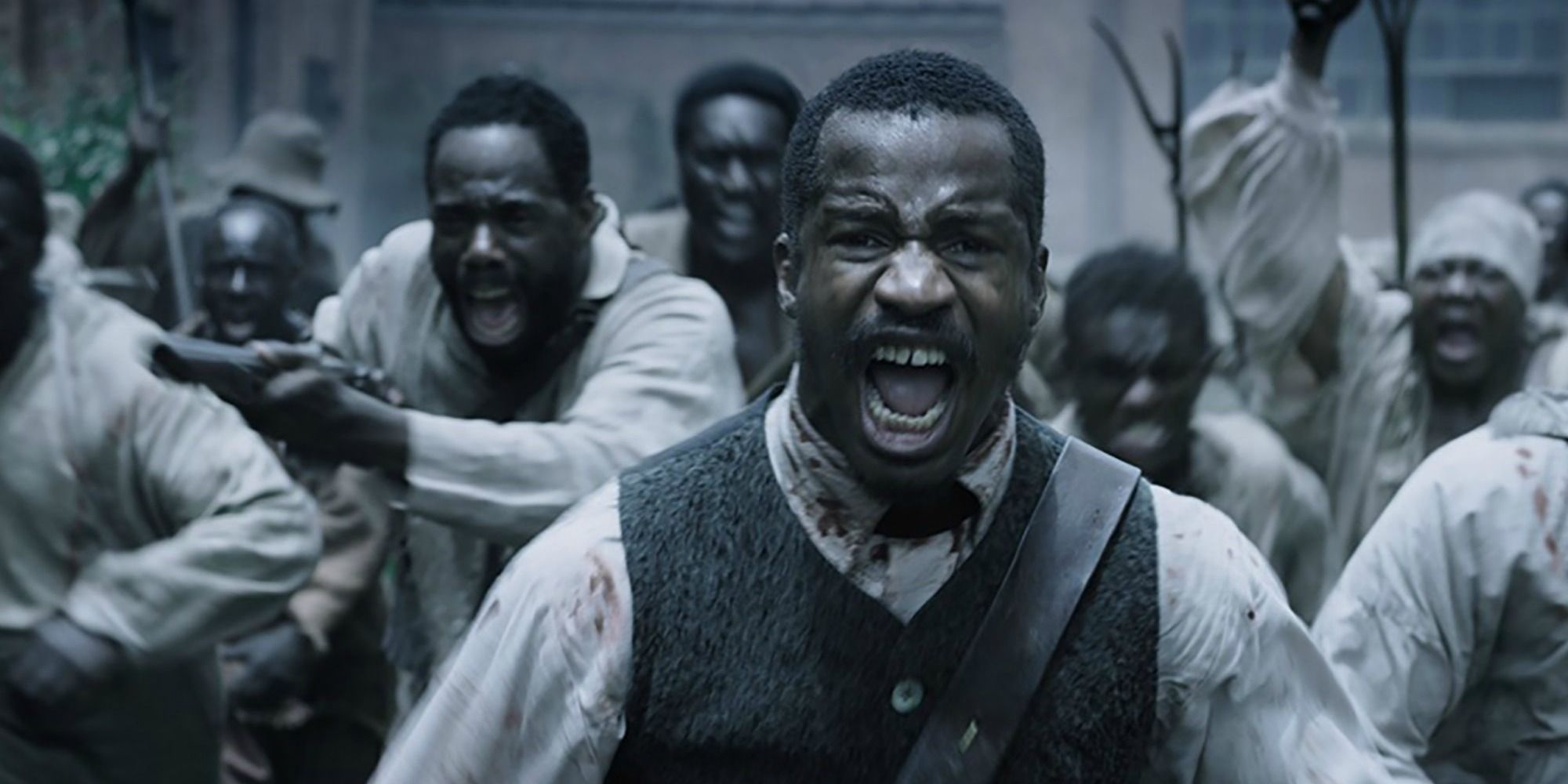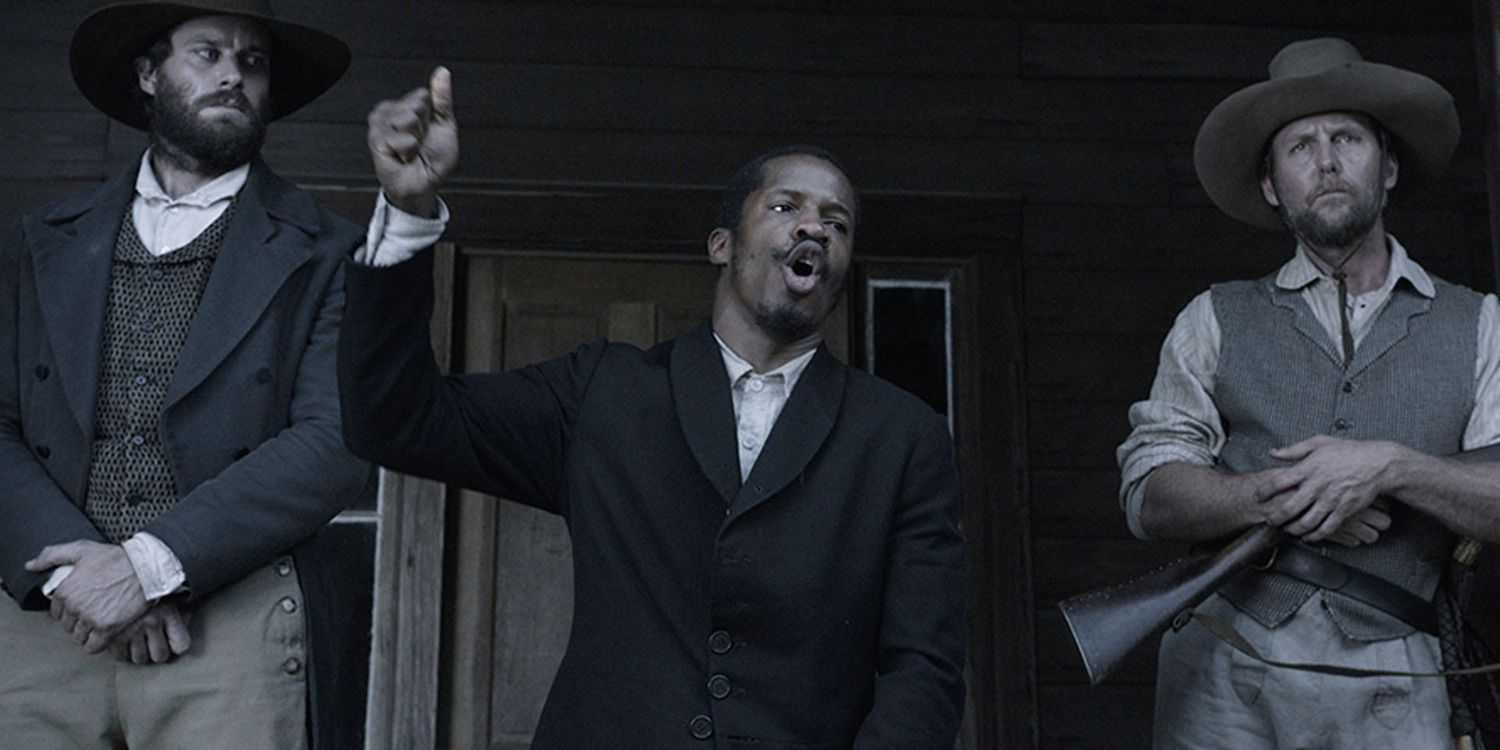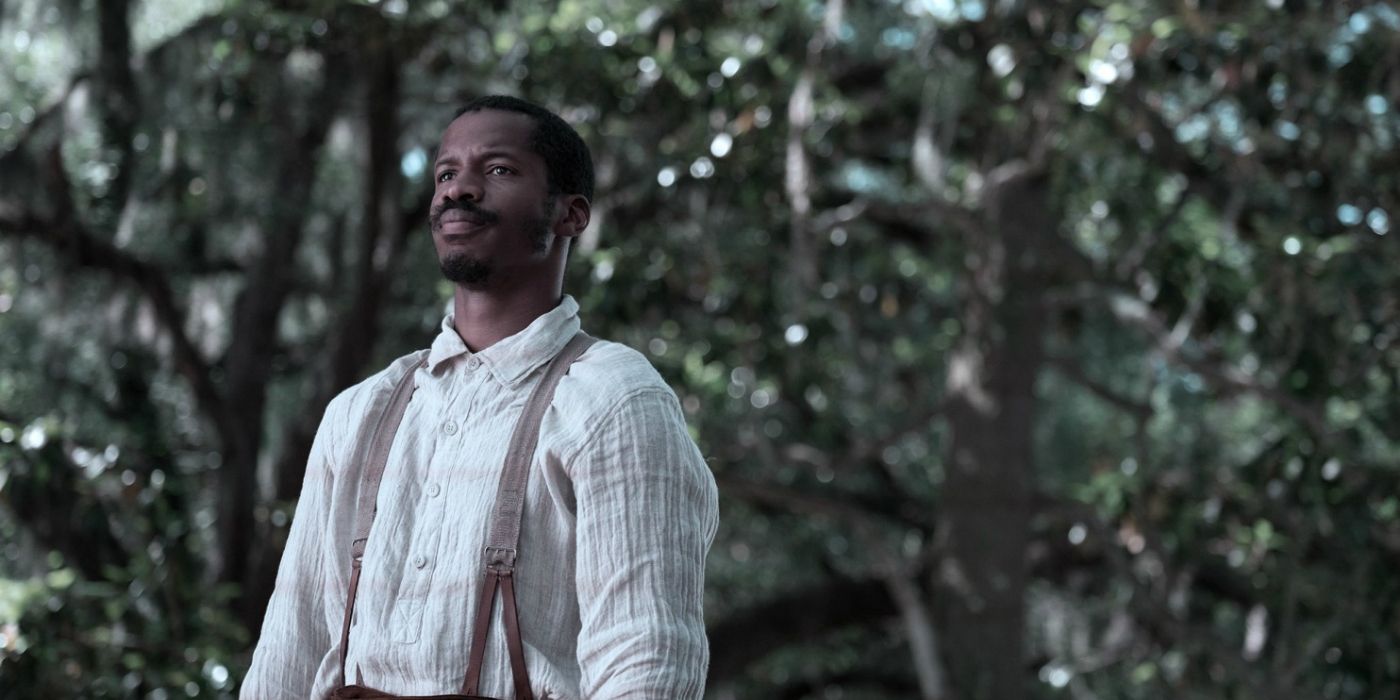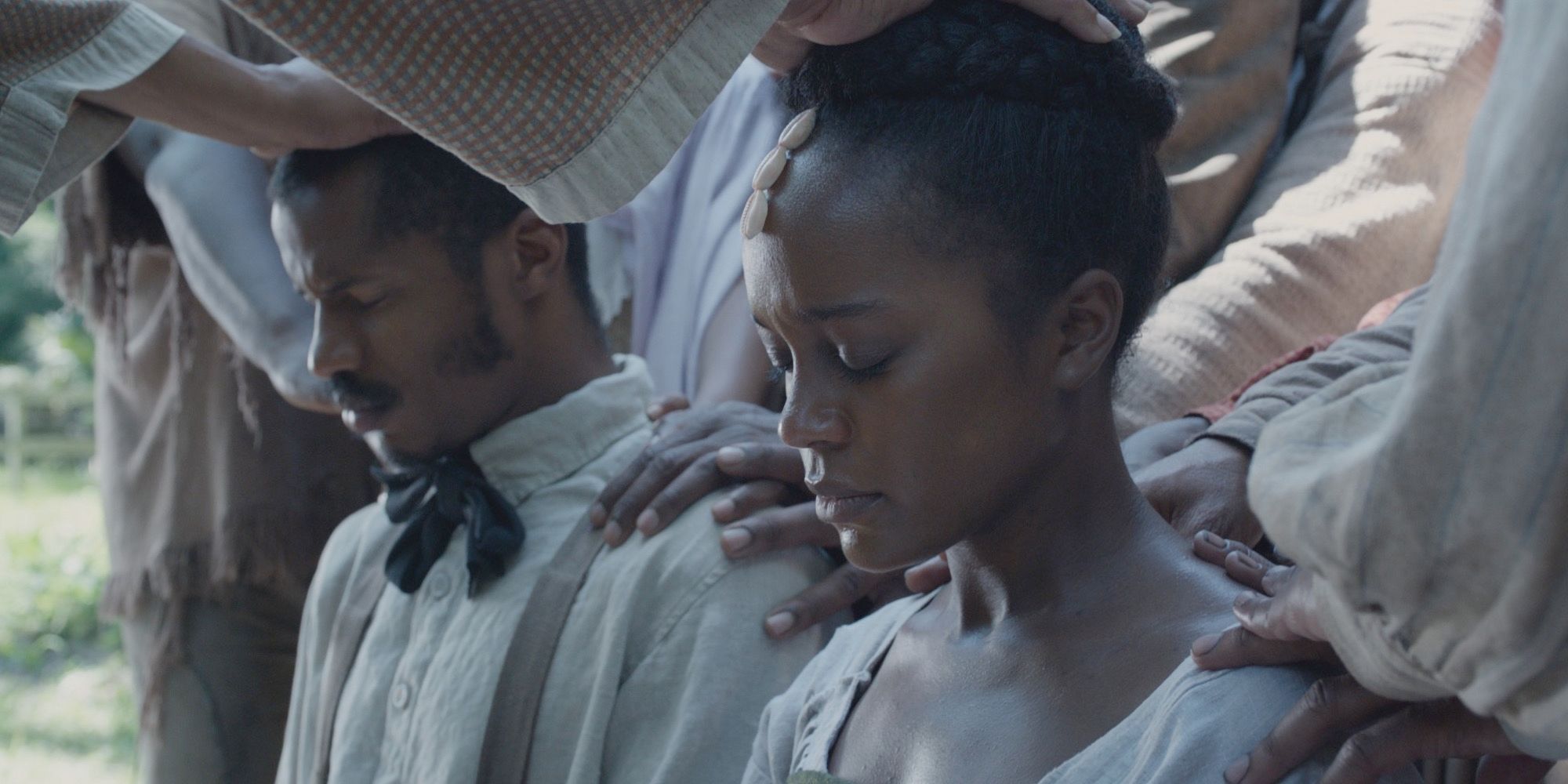The Birth of a Nation is a work of passion-fueled filmmaking and messy storytelling that struggles to make the grand statement it aims for.
Born into slavery, Nat Turner spends his childhood growing up on a plantation in Southampton County, Virgina, in the early 19th century. When the wife of Nat's owner, Elizabeth Turner (Penelope Ann Miller), discovers that Nat can read, she helps him to improve his literacy; having Nat read The Bible, in time allowing him to preach to his fellow slaves years later when he has become a grown man (Nate Parker). When Elizabeth's son Samuel Turner (Armie Hammer), who takes over the family plantation after his father's death, falls on hard times financially, he ends up "lending" Nat to other plantation owners so that Nat can preach to and calm their unruly slaves - for a fee, of course.
However, the more atrocities that Nat witnesses his fellow slaves suffering at the hands of those masters whom he is instructing them to obey (based on Biblical principles), the more his conscience grows uneasy and urges him to fight back against his slave masters, rather than submit to them. At the same time, Nat and those around him continue to suffer personally at the hands of their owners - inspiring Nat to do more than only speak out against the wrongs that he sees happening around (and to) him.
A breakout hit at the 2016 Sundance Film Festival (where it won both the Audience Award and the Grand Jury Prize), The Birth of a Nation is an impassioned yet clunky attempt to adapt the real-life actions of slave-turned rebellion leader Nat Turner into a work of high art cinema. The story of Nat Turner is a compelling one with modern relevance, but The Birth of a Nation struggles to craft an equally engaging or effective narrative from that story. Nevertheless, the film has its strengths in addition to its flaws - and both largely stem from the efforts of its screenwriter, star and helmsman, Nate Parker, making his feature-length directorial debut here.
The Birth of a Nation is, at its heart, a hero's journey narrative about Nat Turner - one that struggles to find its focus in part because the film's version of Nat Turner isn't that well-developed. Nat's spiritual and religious beliefs, as well as the intelligence he gains from years of study and reading The Bible, are what fuel his actions both before and after he becomes a revolutionary; yet The Birth of a Nation neither fully explores the contradictory nature of his beliefs, nor cohesively illustrates how they evolve over the course of its story. As such, when Nat does reach his breaking point (after witnessing so many real-life horrors) it's not as dramatically impactful as intended. Similarly, Parker makes the common first-time director mistake of incorporating too many ideas into the film, in the process over-simplifying a number of them while at the same time struggling to form them into precise themes. The final shot in The Birth of a Nation does deliver a basic, yet all the same powerful message - but it would have come across much stronger had the film formed a clearer vision of Nat Turner and his story before then.
Although Parker as a director is guilty of incorporating stylistic flourishes (such as heavy-handed visual metaphors) that call attention to themselves more than enhance the story being told, The Birth of a Nation is quite the visually pleasing film on the whole. The cinematography by Elliot Davis (Twilight, The Iron Lady) paints much of the proceedings in rich shades of black and dark blue; at the same time, relying heavily on the usage of dramatic closeups and motifs (like the recurring shots of cotton fields) to create its sense of place and atmosphere. While The Birth of a Nation doesn't shy away from disturbing imagery depicting violences against slaves either, there are times when the graphic visuals have more of a shock value effect than an emotionally impactful one. Similar to how its narrative attempts to wrestle with too many big ideas, The Birth of a Nation's efforts to create powerful images are driven more by feeling than careful consideration about their implications.
Nate Parker's performance as Nat Turner is likewise strongest when Parker is expressing the character's emotions on the surface, rather than during the sequences where Nat is being more introspective. While Nat Turner might have benefited from being presented as a more complex protagonist, The Birth of a Nation paints the characters of Elizabeth Turner and Samuel Turner in richer shades of grey by comparison. There is some uneven characterization when it comes to Samuel in particular, but these two slave owners better illustrate the complicated nature of people who treat their slaves well - without ever really seeing them as equals - thanks in part to Penelope Ann Miller (The Artist) and Armie Hammer's (The Social Network) respective performances.
Unfortunately, other supporting players like Colman Domingo (Fear the Walking Dead) as Nat's fellow slave Hark only come into play to move the plot along, more than anything else. Similarly, Nat's wife Cherry (as played by How to Get Away With Murder's Aja Naomi King) is developed only enough so that when bad things happen to her, it serves to fuel Nat's arc more than hers. The Birth of a Nation also pits Nat and his fellow slaves against a vision of the antebellum South that is populated primarily by hokey villains, played by go-to bad guy actors like Jackie Earle Haley (Watchmen) and Mark Boone Junior (Sons of Anarchy). This, in turn, makes the film more effective as a melodrama, but less so as the thoughtful drama that it seemingly wants to be.
For all the controversy that now surrounds The Birth of a Nation due to Nate Parker's personal life, the actual film is more a middle-of-the-road effort by a first-time director - one who is still pretty rough around their edges, but does show the potential to become a better filmmaker. The Birth of a Nation is a work of passion-fueled filmmaking and messy storytelling that struggles to make the grand statement it aims for. Some moviegoers will appreciate that Nat Turner's story is brought to life by a storyteller who is clearly interested in doing right by their real-life subject - and may find themselves more forgiving of the film's shortcomings for related reasons. Others moviegoers might also appreciate how high the film sets its sights, even if they too feel the end result is more of a wannabe-masterpiece than a solid grounder (much less a hit out of the park).
TRAILER
The Birth of a Nation is now playing in U.S. theaters. It is 120 minutes long and is Rated R for disturbing violent content, and some brief nudity.
Let us know what you thought of the film in the comments section!




